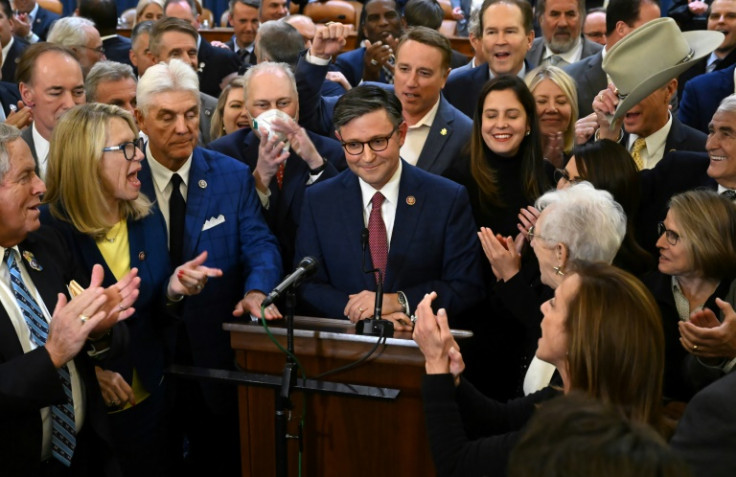
The House Rules Committee moved forward with a set of foreign aid bills on Thursday evening, with Democrats providing crucial support for the procedural vote, overcoming resistance from a small group of staunch Republicans.
The committee passed the rule, which decides the parameters for discussing the legislation worth $95 billion, with a 9-3 vote, as staunch Republicans Thomas Massie, Chip Roy, and Ralph Norman stood in opposition.
The approval of the vote grants the entire House the opportunity to vote on the rule and start discussions on three foreign aid bills aimed at supporting Israel, Ukraine, and partners in the Indo-Pacific region. A fourth bill addressing various national security priorities, including a proposed TikTok ban, will also be open for debate.
Usually, rule votes, both in committee and on the floor, proceed along predictable, party-line divisions, with members of the majority supporting the rule and those in the minority opposing it.
This week, Republican House Speaker Mike Johnson initiated a strategy to move forward with the package, which has been stalled since October due to resistance from GOP lawmakers opposed to increasing funding for Ukraine's conflict with Russia.
Faced with mounting dissent from within his own party and facing potential challenges to his leadership, Johnson found himself relying on support from House Democrat Leader Hakeem Jeffries to navigate the process.
When it came up for voting on Thursday, conservative members, in a departure from this norm, voted against the rule. However, in an unusual move, Democrats crossed party lines this time to endorse the procedural vote.
The increasing push for bipartisanship, a rare occurrence in the polarized Congress, resulted in uncommon displays of cooperation between Republicans and Democrats to uphold U.S. influence on the global platform and provide assistance to American allies. However, it also plunged Speaker Johnson's House Republican majority into further disarray, stirring up fresh turmoil within the party.
The successful rule votes on Thursday night represent a significant milestone overcome for the foreign aid package, which has encountered fierce opposition ever since Johnson introduced the blueprint for his strategy on Monday.
Johnson is rallying behind the $60.8-billion aid package for Ukraine, aiming to avert significant setbacks on the battlefield amid concerns that its forces are severely outmatched and that trust in the U.S. is waning due to prolonged delays in delivering additional funds.
His sudden move to deliver aid followed closely on the heels of recent intelligence reports saying Ukraine as being at a critical juncture in its conflict with Russia. The assessment mirrored the dire warnings that President Joe Biden and the White House had been conveying to Johnson for months in private discussions.







